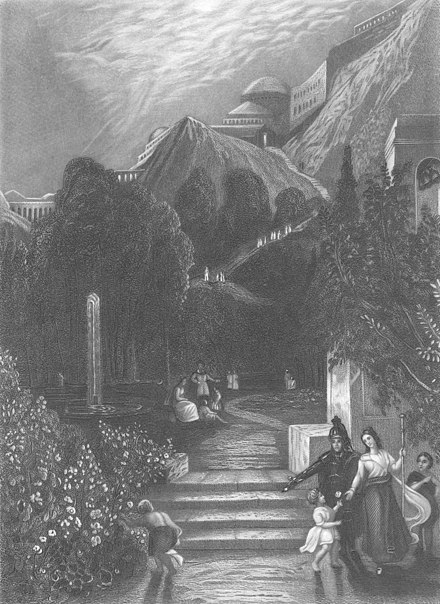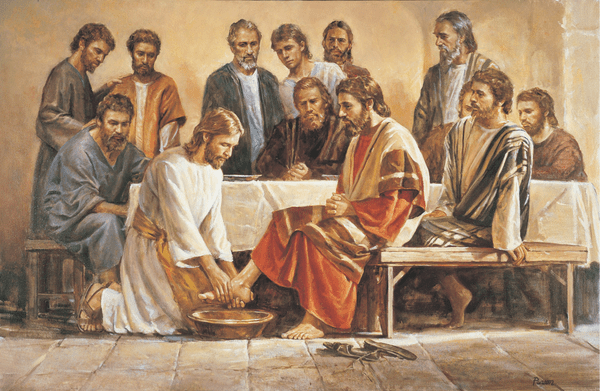Identifying basic skills of learning as reading, writing and arithmetic – the three Rs – has been around as early as the 17th century in America. Without some competency in these areas, most students are unable to graduate from school. Even educators who debate about how to test these skills basically agree that these are essential tools for advancement in life.
Jesus, the Master Teacher, taught multitudes but His ongoing classroom had twelve men in it – His disciples. Simon Peter (someone many Christians can relate to) was sometimes at the head of the class and other times failed miserably. In the process, Peter’s specific assignment was to process his own three Rs – Redemption, Recommitment and Restoration. He did graduate and as a result, became an example of hope for the rest of us.
Although his brother Andrew introduced Peter to Jesus, in every list of the apostles, Peter’s name comes first. In God’s plan for Peter’s life, He knew that Peter’s personality – outgoing, impulsive, outspoken and excitable – could be developed into a strong leader for the first century church. He just needed to learn a few lessons first.
Redemption
When Peter, a fisherman, left his nets behind and followed the Lord, he listened, observed, absorbed and learned. Only a man with an awareness of his own need for salvation would say, “depart from me, for I am a sinful man, O Lord” (Luke 5:8). Only a man of faith could declare, “You are the Christ, the Son of the living God” (Matthew 16:16) and “You have the words of eternal life” (John 6:68).
Yet, with all his faith and confession, Peter had a bad habit of arguing with the Lord. Someone once said, “I have spent half my life wishing I had shut up ten minutes ago.” Peter must have felt that way many times. Scripture mentions only a few of Peter’s impulsive statements to the Lord.
- “Far be it from You, Lord. This shall not happen to You” (Matthew 16:22).
- “Even if all are made to stumble because of You, I will never be made to stumble” (Matthew 26:33).
- “Even if I have to die with You, I will not deny You” (Matthew 26:35)
- “You shall never wash my feet!” (John 13:8).
- “Not so, Lord, I have never eaten anything unclean” (Acts 10:14).
Peter loved the Lord and the Lord loved Peter. He was included in a special trio that was with Jesus on the mountaintop when He met with Moses and Elijah. It was Peter who wanted to erect temples for each one of them. He was brought along to the Garden of Gethsemane to stand by the Lord and pray before the crucifixion. When Jesus found the disciples sleeping, it was Peter that the Lord asked, “What! Could you not watch with Me one hour? Watch and pray, lest you enter into temptation. The spirit indeed is willing, but the flesh is weak.”(Matthew 26:40-41).
As Jesus observed His last Passover with His disciples, there ensued an argument among them about who should be considered the greatest. Jesus interrupted their dispute, saying …he who is greatest among you, let him be as the younger, and he who governs as he who serves”. Then He turned to Simon and said, “Simon, Simon! Indeed, Satan has asked for you, that he may sift you as wheat. But I have prayed for you, that your faith should not fail; and when you have returned to Me, strengthen your brethren” (Luke 22:26, 31-32).
Not long after that, as Jesus had predicted, Peter denied three times that he even knew the Lord. He followed Him at a distance (Matthew 26:58). We “keep our distance” when we don’t want to be involved, don’t want to be recognized and don’t want to be associated with someone. The bold fisherman who had left all to follow Jesus was now afraid and weak.
After Jesus’ crucifixion, Peter went back to fishing with some of the other disciples. They fished all night and caught nothing. Waiting for them on the shore, the risen Jesus instructed them to cast their nets on the right side of the boat. They then caught 159 fish. After breakfast, Jesus asked Peter three times if he loved Him. Three times Peter said, “You know I love You.”
Jesus then told Peter what type of death he would experience and told him to “Follow Me.”
Peter, still dealing with a bit of jealousy, referring to the apostle John, asked Jesus, “What about this man?” Jesus said to him, …what is that to you? You follow Me” (John 21:21-22).
Recommitment and Restoration
This third command to “Follow Me” was pivotal in Peter’s life.
At the beginning, Jesus told Peter and Andrew, “Follow Me and I will make you fishers of men” (Matthew 4:18-19). Now His call to Peter was more personal. “You follow Me.” This time, Peter followed Jesus, not by His side, and not from a distance, but with a heart empowered by His Holy Spirit. The presence and influence of Jesus would no longer be determined by time or space.
Initially, Peter followed Jesus but allowed his impulsiveness and outspokenness to get in his way. After an egregious heart breaking denial of his Lord, he recommitted his life to follow Him – this time with much different results. Jesus restored him, molding him into someone He could rely on. Peter had learned his lesson. No longer wanting recognition, no longer jealous, his ministry was now focused on the love of God. The Peter of denial became the Peter of Pentecost, his “foot in mouth” disease giving way to life-giving sermons, his fear replaced by miracle performing power.
Jesus knew Peter would deny Him, but also knew Peter would return to Him and with an ever-present memory of those denials, accomplish his calling – to feed and tend the Lord’s sheep and strengthen his brothers to do the same.
Satan recognizes those who have great potential to be used by God. He asked permission to ruin Job’s testimony, certainly he tried to divert Jesus’ attention from His mission and he asked permission to sift Peter like wheat. When Satan’s attacks come hurling toward you, recognize that he no only had to ask permission first, but he is doing so because of the potential he has seen in your life. Also remember that Jesus is interceding for you, just as He did for Peter.
Redeemed, recommitted and restored is the testimony of Peter. Is it yours?
© Stephanie B. Blake
February 2016
Download In the Classroom with Peter









 I am blessed with six amazing grandchildren. The most recent addition is another precious girl from China. She was three and one half when she came into the family and was a little over four when I met her for the first time. During my second visit with her and her family, I took her and her sister to the park where her dad, Opa, and her brothers were playing basketball. On the way back, I carried her on my back. As soon as we were in sight of their house, Ava said, “I see home!”
I am blessed with six amazing grandchildren. The most recent addition is another precious girl from China. She was three and one half when she came into the family and was a little over four when I met her for the first time. During my second visit with her and her family, I took her and her sister to the park where her dad, Opa, and her brothers were playing basketball. On the way back, I carried her on my back. As soon as we were in sight of their house, Ava said, “I see home!” Like Ava, I see home.
Like Ava, I see home.